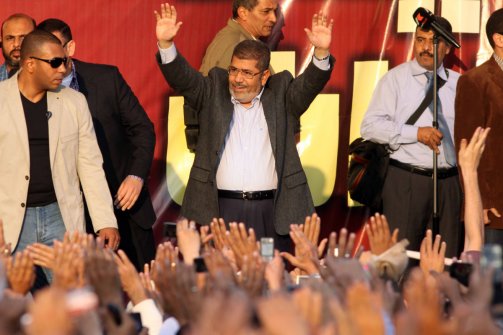
So it is ironic that by granting himself sweeping powers, including immunity for his decisions against judiciary appeal, he has violated one of the central principles of Sharia: no one is above the law.
It is little wonder that the streets of Cairo are alive with protesters, some from Morsi’s Muslim’s Brotherhood, who are decrying this power grab. If Morsi is willing to violate God’s law, then doesn’t that just make him another dictator in the mold of Hosni Mubarak?
Throughout the Muslim world, people are watching Egypt. The ability of the democratically elected government of one of the most important Muslim-majority nations to create a modern society based on Sharia would be a powerful statement.
For the past six years, I have been working with some of the leading Muslim scholars to create a Sharia Index to determine what an authentic, tradition-based Islamic state ought to look like. The majority of our scholars concluded that a representative democracy, which can determine the collective will of the people, is the best contemporary method of determining God’s will.
A healthy democracy—as Americans know—needs effective checks and balances, especially an independent judiciary.
That is why Morsi’s decree to stop the courts from reviewing his decisions is so wrong under the traditional concept of Sharia. From the time of the Prophet Muhammad, the courts always have had an independent role in checking the power of the executive.
During the Ottoman Empire, the Sheikh ul-Islam, who combined both judicial authority and religious authority, had the power even to oust the executive, the sultan.
According to the Quran, the highest political authorities are subject to judicial review. God’s law in an Islamic state is ideally represented through an independent judiciary, which acts to ensure justice and serves as a check on the legislative process.
By taking that power into his own hands, Morsi has betrayed the trust that the people put in him during the last election. The judiciary is fighting back with strikes. The Supreme Constitutional Court accused Morsi of attacking the justice system.
Morsi can argue that this is a temporary action needed to ensure the final triumph of a democratic state under Sharia. I have two problems with that. First, budding tyrants often use that argument as a pretext to seize power. And second, anyone who claims to want to achieve moral ends must use moral means. Otherwise, the moral ends—if they are ever reached—are tarnished.
A great experiment is underway in Egypt. The world is watching closely. Muslims are searching for a way to join the modern world without compromising their moral values. They are hoping for governments that are servants of the people, not their masters.
Morsi is under tremendous pressure. To rise to greatness as a paradigm-shifting leader, he must avoid the temptation to succumb to arrogance and to assume he can lead alone.
No one can expect Morsi to be George Washington, but his role here is similar to Washington’s when he became the first U.S. president. Every step Morsi takes establishes a precedent in establishing new governing institutions and the proper relationships between them.
Egypt needs—and Egyptians want—a government of institutions, not individuals. They want checks and balances between those institutions. They want the rule of law. They don’t want individuals wielding power for a lifetime.
Washington became great because he refused to take the power that he so easily could have grabbed. He voluntarily stepped down after two terms and allowed the institutions created by the Constitution to move forward. Because of that, the United States is a democracy, and democracy has spread around the world.
Can Morsi live up to that challenge?
Like The Daily Beast on Facebook and follow us on Twitter for updates all day long.
Imam Feisal Abdul Rauf is author of Moving the Mountain, published by Free Press. He is chairman of Cordoba Initiative, an independent, multi-faith, and multi-national project that provides innovative solutions to those areas where conflict between Islamic and Western communities undermines local and global security. His work has appeared in The Wall Street Journal and Foreign Policy, and Time magazine named him among the 100 most influential people of the world.



